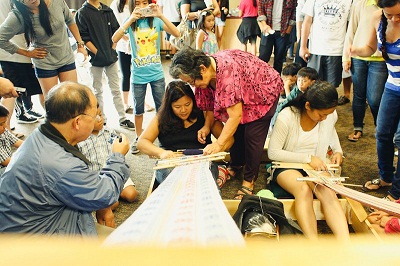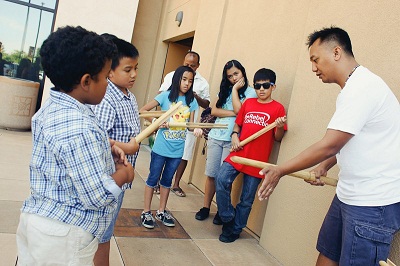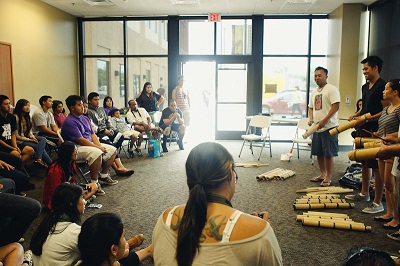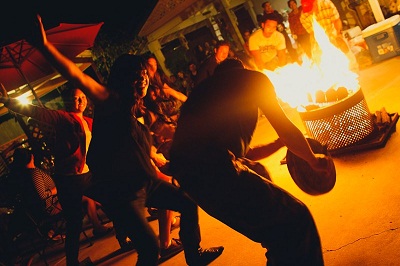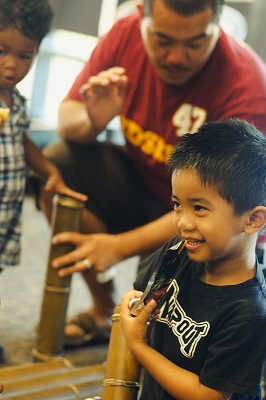
Kalingas-North America Network
Kalinga arts and culture
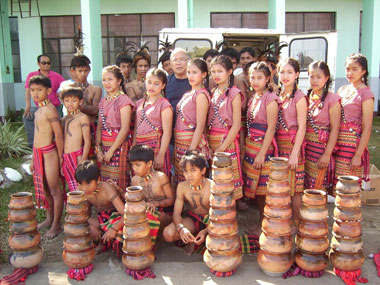 Kalinga is a province of the Philippines and home to a native people of the same name. Since 2000, the founders of the Los Angeles-based Kalingas-North America Network, Inc. have worked to preserve and perpetuate their indigenous cultural arts as well as to share them with their present communities in this country.
Kalinga is a province of the Philippines and home to a native people of the same name. Since 2000, the founders of the Los Angeles-based Kalingas-North America Network, Inc. have worked to preserve and perpetuate their indigenous cultural arts as well as to share them with their present communities in this country.
In 2012, Kalingas-North America Network received a grant from ACTA’s Living Cultures Grants Program to host the first youth Canao, or gathering, targeting children and young adults of Igorot (people form the indigenous regions of Northern Luzon in the Philippines) descent living in Southern California. The Canao is an opportunity to learn traditional music and dance, to reconnect with friends and family, and be encouraged and inspired to continue their heritage. The youth gathering will include workshops featuring bamboo instrumentation in playing traditional music and learning the nearly extinct art of back strap weaving. The Canao will be hosted by Kalingas-North America Network and BIBAK San Diego Youth (an acronym pertaining to other indigenous tribes of the Philippines: Bontoc, Ifugao, Benguet, Apayao and Kalinga).
In 2008, Kalingas-North America Network received a grant from ACTA’s Living Cultures Grants Program for the purchase of indigenous musical instruments and traditional dance regalia in an effort to enhance their cultural and educational projects. These purchases were made from indigenous Kalinga master artisans and craftsmen in the tribal villages of the northern Philippines, where fabrics are still made by hand in the old method of back-strap weaving.
In 2002, Kalingas-North America Network participated in ACTA’s Traditional Arts Development Program, allowing them to gather Kalinga families to record traditional native songs and chants, as well as instrumental music using brass gongs and bamboo flutes.

